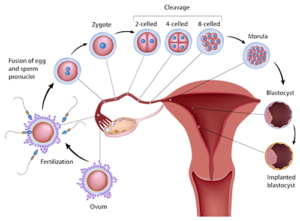 To better grasp the procedure related to ICSI fertility treatment in Mumbai, one needs to first understand the reason for its utilization. During the conception process, the head of a man’s sperm must connect to the exterior of the woman’s egg in order to trigger the fertilization process. Once joined, the sperm pushes its way through the egg’s outer layer to the cytoplasm, where fertilization occurs.
To better grasp the procedure related to ICSI fertility treatment in Mumbai, one needs to first understand the reason for its utilization. During the conception process, the head of a man’s sperm must connect to the exterior of the woman’s egg in order to trigger the fertilization process. Once joined, the sperm pushes its way through the egg’s outer layer to the cytoplasm, where fertilization occurs.
For a variety of reasons, sperm may find it difficult to enter the outer layer. This could be due to the sperm’s inability to swim or the egg’s outer layer may be thick or difficult to penetrate.
In such situations, intracytoplasmic sperm injection (ICSI) can be used in conjunction with in vitro fertilization (IVF) to aid in the fertilization of the egg. During the process, a single sperm is injected directly into the cytoplasm of the egg during ICSI treatment in Mumbai.

